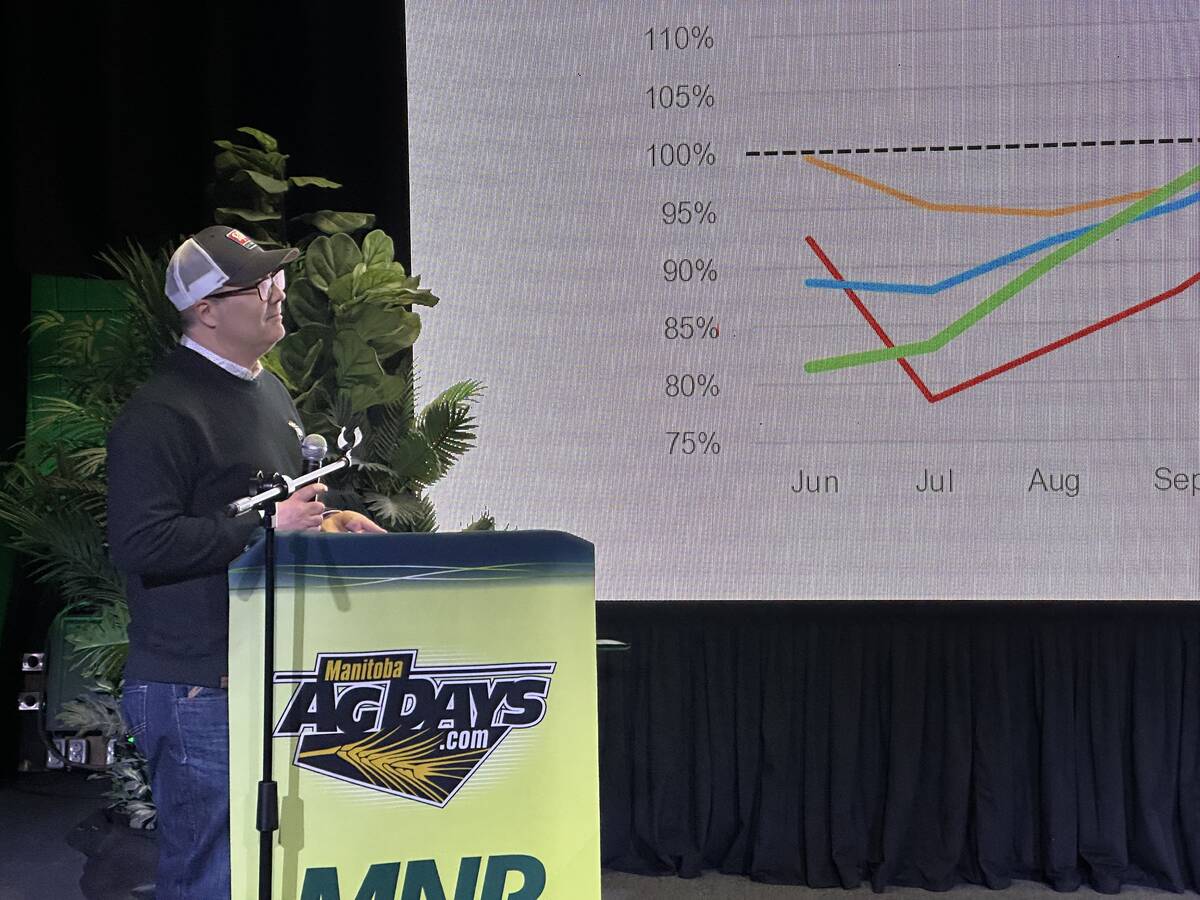Prices for Canadian canola and Chicago soyoil appeared to be in stasis during the week ended Oct. 21, as growers awaited news that could change the fortunes for both oils.
Both the November and January canola contracts on the Intercontinental Exchange traded rangebound and closed at $615.60 and $630.10 per tonne, respectively, unchanged from the week before. The December Chicago soyoil contract, which canola futures tend to mirror closely, moved up 0.08 U.S. cents per pound to close at 50.65 on Oct. 21. All three contracts were close to their 20-day averages but well below their respective 50- and 100-day averages.
Read Also

MANITOBA AG DAYS: Don’t wait to buy fertilizer, farmers warned
Higher fertilizer prices likely ahead, says Ag Days speaker. Farmers waiting until spring to buy fertilizer might end up eating the cost.
Their steadiness was a surprise considering November Chicago soybeans jumped 24.25 cents per bushel after U.S. President Donald Trump posted on social media last weekend he believes a deal for China to buy U.S. soybeans can be done.
Sooner or later, U.S. soybean growers – and by extension, Canadian canola growers — will be in for a big disappointment.
Weeks after Treasury Secretary Scott Bessent teased an announcement regarding a financial aid package for the U.S. soybean industry, nothing has materialized. Instead, Trump and Bessent shifted their focus to a US$20 billion currency swap with Argentina approved last week, with the possibility of another US$20 billion to come later. Some believe the funds are intended for Trump’s ally Argentine President Javier Milei as polls put his Freedom Advances party in second behind the left-wing Homeland Force ahead of legislative elections Oct. 26.
Adding to the indignity upon U.S. soybean growers, Argentina is one of many countries usurping the U.S. when it comes to soybean exports to China. Last month, it made US$7 billion selling soybeans in a matter of days during an export tax holiday.
It’s becoming clear that U.S. soybean growers are being left behind and China seems well stocked for the crop ahead of the South American harvest which begins in January. If China isn’t in dire need for soybeans, then it may not need Canadian canola either.
January canola has stayed between $620 to $640/tonne over the past two weeks and harvest pressure is easing off. But the longer China depends on other oilseeds, there will eventually be a disruption to the downside.


















